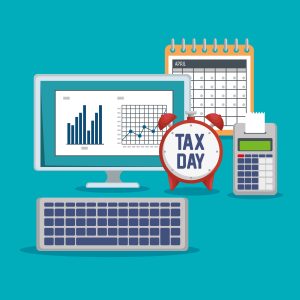Introduction To Expert Tax Planning
Tax planning is a crucial aspect of financial management for individuals and businesses alike. It involves strategizing to minimize tax liability while maximizing financial gains within the boundaries of the law. When it comes to navigating the complex landscape of taxes, seeking expert guidance can make all the difference.

Understanding The Importance Of Tax Planning
Effective tax planning goes beyond mere compliance with the tax laws. It enables individuals and businesses to optimize their financial resources, preserve wealth, and plan for the future. By leveraging various tax-saving strategies, individuals can significantly reduce their tax burden and allocate resources more efficiently.
Qualities Of Expert Tax Planning Services
Expert tax planning services possess certain key qualities that set them apart. These include:
Experience And Expertise
Reputable tax planning professionals have years of experience and a deep understanding of tax laws and regulations. They stay updated on changes in tax legislation and employ their expertise to devise tailored solutions for each client.
Personalized Approach
Every individual or business has unique financial circumstances and goals. Expert tax planners take a personalized approach, carefully analyzing each client’s situation to develop customized strategies that align with their objectives.
Knowledge Of Tax Laws And Regulations
Tax laws are complex and subject to frequent changes. Expert tax planners are well-versed in the intricacies of tax codes and regulations, ensuring compliance while maximizing tax-saving opportunities for their clients.
How To Find Expert Tax Planning Near You
Finding the right tax planning service requires thorough research and consideration. Here are some steps to help you locate expert tax planning services in your area:
Researching Online
Start by conducting online research to identify reputable tax planning firms or individual professionals in your locality. Explore their websites, read client testimonials, and assess their credentials and areas of expertise.
Seeking Recommendations
Seek recommendations from friends, family members, or colleagues who have used tax planning services in the past. Personal referrals can provide valuable insights into the quality of service and the effectiveness of tax planning strategies.
Checking Qualifications And Credentials
Verify the qualifications and credentials of tax planners before engaging their services. Look for certifications such as Certified Public Accountant (CPA) or Enrolled Agent (EA), which indicate a high level of expertise and professionalism.
Questions To Ask When Choosing A Tax Planning Service
When evaluating potential tax planning services, ask the following questions to ensure they meet your needs:

Experience With Similar Clients
Inquire about the tax planner’s experience working with clients in similar financial situations or industries. A track record of success in handling cases similar to yours is a positive indicator of their ability to deliver results.
Approach To Tax Optimization
Understand the tax planner’s approach to tax optimization and their strategies for minimizing tax liability while maximizing savings. Transparency in their methods and willingness to explain complex concepts are essential for building trust and confidence.
Fee Structure
Discuss the fee structure upfront to avoid any surprises later on. Clarify how fees are calculated, whether they are based on hourly rates, fixed fees, or a percentage of savings achieved through tax planning.
Benefits Of Local Expert Tax Planning Services
Choosing a local tax planning service offers several advantages, including:
Familiarity With Local Tax Laws
Local tax planners have in-depth knowledge of state and municipal tax laws, allowing them to tailor strategies that take advantage of regional tax incentives and deductions.
Accessibility For Consultations
Proximity to your tax planner facilitates regular consultations and seamless communication, enabling timely adjustments to your tax planning strategy as needed.
Common Misconceptions About Tax Planning
Despite its importance, tax planning is often misunderstood. Here are some common misconceptions:
It’s Only For The Wealthy
Tax planning is beneficial for individuals of all income levels, not just the wealthy. Effective tax planning can help middle-class families and small businesses optimize their finances and achieve their financial goals.
It’s Only For Individuals
While individuals can certainly benefit from tax planning, businesses of all sizes can also take advantage of tax-saving strategies to reduce their tax liability and improve their bottom line.
Steps Involved in Effective Tax Planning
Effective tax planning involves the following steps:
Assessing the Current Financial Situation
Evaluate your current financial situation, including income, expenses, assets, and liabilities. Identify areas where tax-saving opportunities may exist.
Setting Goals
Define your short-term and long-term financial goals, such as retirement planning, education funding, or wealth accumulation. Your tax planning strategy should align with these objectives.
Implementing Strategies
Work with your tax planner to implement tailored strategies aimed at minimizing tax liability and maximizing savings. These may include retirement contributions, investment allocations, or charitable giving.
Reviewing And Adjusting
Regularly review your tax planning strategy to ensure it remains aligned with your financial goals and adapts to changes in tax laws or personal circumstances. Make adjustments as necessary to optimize your tax position.
Case Studies: Successful Tax Planning Strategies
Real-life examples of successful tax planning strategies demonstrate the tangible benefits of proactive tax management. Case studies highlight how individuals and businesses have achieved significant tax savings and improved financial outcomes through strategic planning and execution.
Challenges In Tax Planning
Tax planning is not without its challenges. Factors such as changing tax laws, complex financial situations, and evolving business dynamics can pose obstacles to effective tax management. However, with the right expertise and guidance, these challenges can be overcome.
The Future Of Tax Planning
The landscape of tax planning is continually evolving, driven by technological advancements, regulatory changes, and shifting economic trends. The future of tax planning will likely see greater integration of digital tools and automation, making tax compliance more efficient and cost-effective for individuals and businesses alike.
Conclusion
Expert tax planning plays a crucial role in optimizing financial resources, minimizing tax liability, and achieving long-term financial success. By partnering with knowledgeable professionals and implementing tailored strategies, individuals and businesses can navigate the complexities of the tax system with confidence and efficiency.

